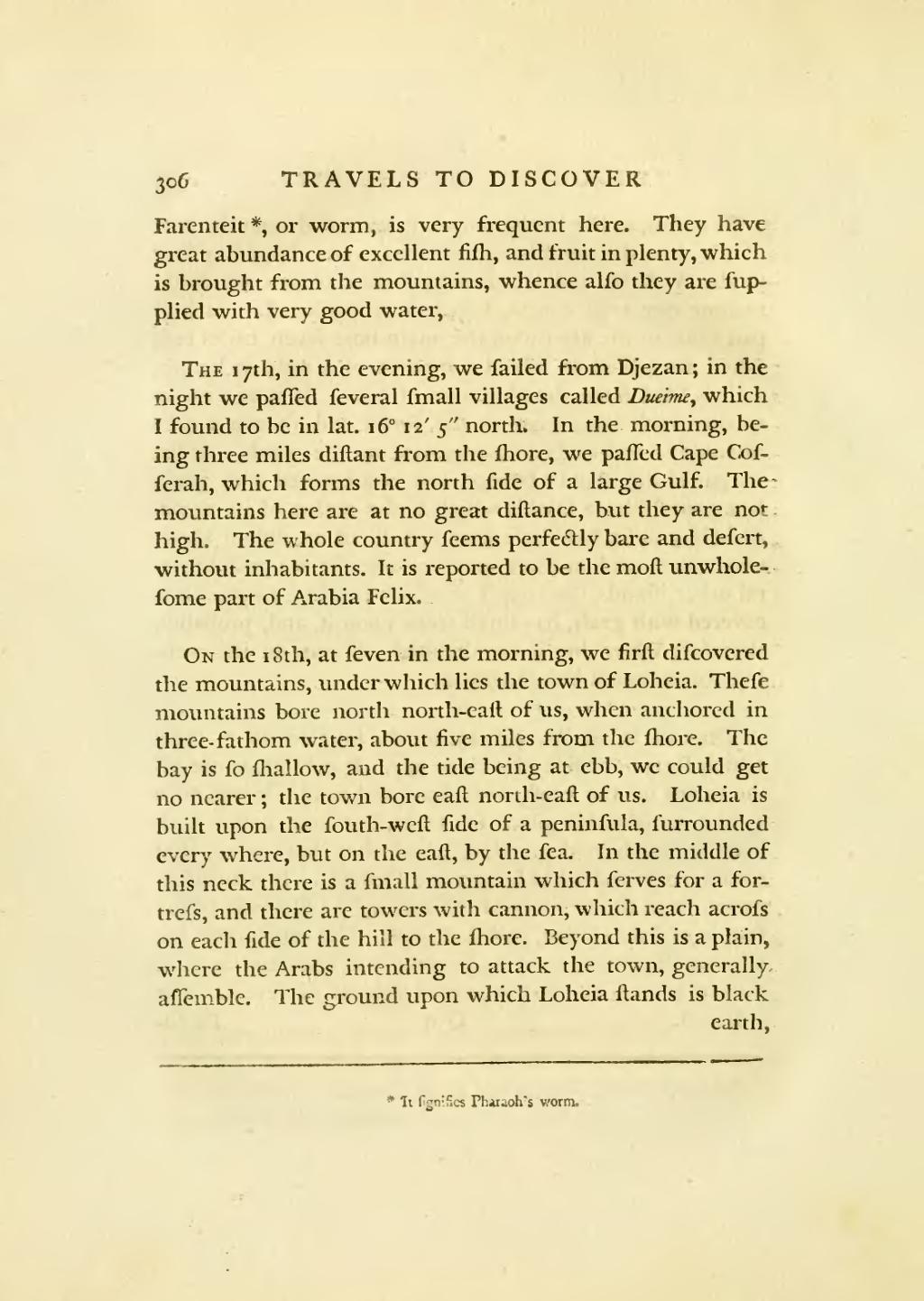3o6 TRAVELS TO DISCOVER
Farenteit *[1], or worm, is very frequent here. They have great abundance of excellent fish, and fruit in plenty, which is brought from the mountains, whence also they are supplied with very good water,
The 17th, in the evening, we sailed from Djezan; in the night we passed several small villages called Dueime, which I found to be in lat. 16° 12' 5" north. In the morning, being three miles distant from the shore, we passed Cape Cosserah, which forms the north side of a large Gulf. The mountains here are at no great distance, but they are not high. The whole country seems perfectly bare and desert, without inhabitants. It is reported to be the most unwholesome part of Arabia Felix.
On the 18th, at seven in the morning, we first discovered the mountains, under which lies the town of Loheia. These mountains bore north north-east of us, when anchored in three-fathom water, about five miles from the shore. The bay is so shallow, and the tide being at ebb, we could get no nearer; the town bore east north-east of us. Loheia is built upon the south-west side of a peninsula, surrounded every where, but on the east, by the sea. In the middle of this neck there is a small mountain which serves for a fortress, and there are towers with cannon, which reach across on each side of the hill to the shore. Beyond this is a plain, where the Arabs intending to attack the town, generally assemble. The ground upon which Loheia stands is black
- ↑ * It signifies Pharaoh's worm.
earth,
- It signifies Pharaoh's worm.
